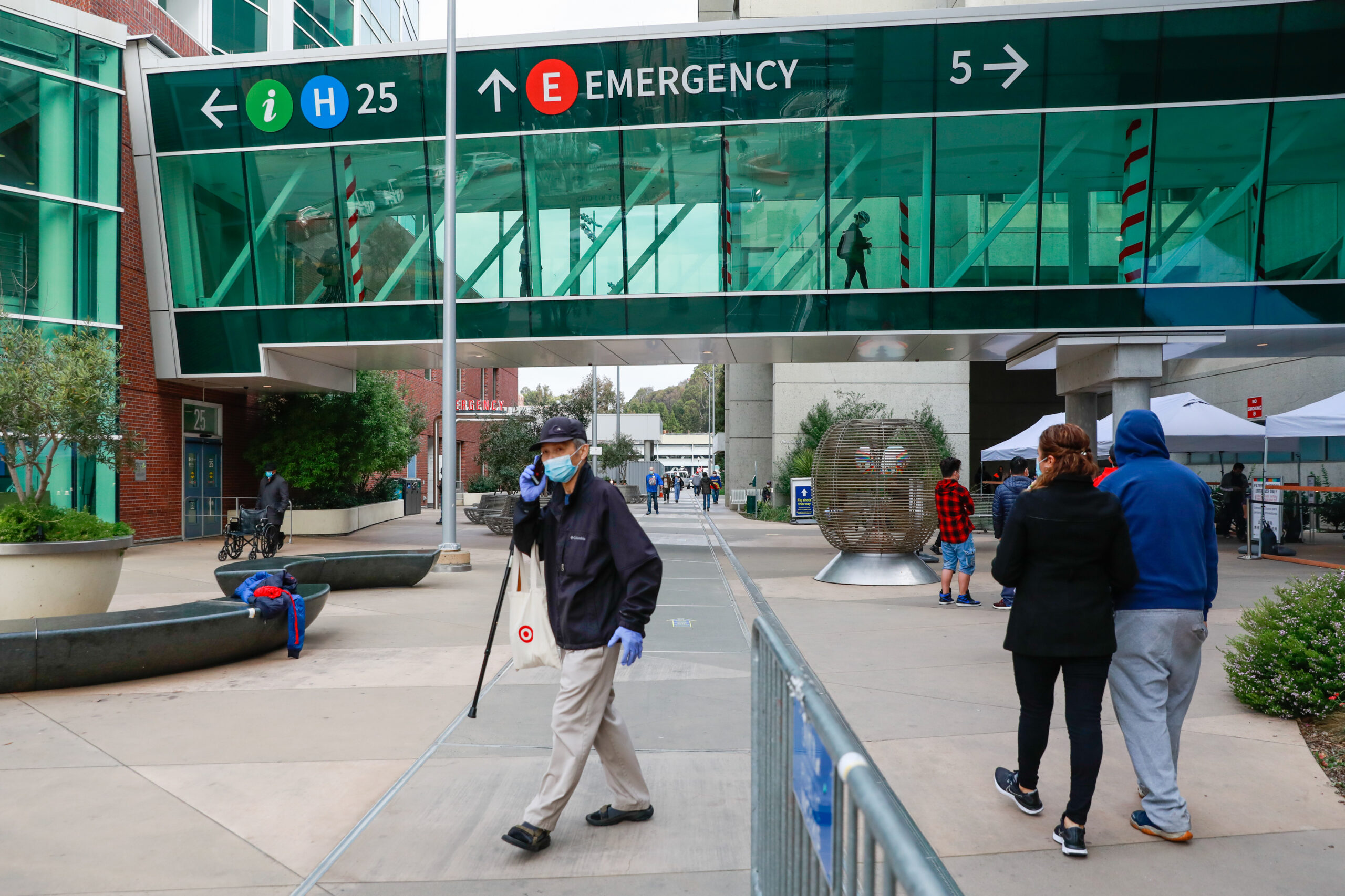After more than two years of Covid, respiratory viruses are roaring back and throwing Bay Area residents and hospitals for a loop.
Rising rates of influenza and respiratory syncytial virus (RSV) infections—along with lingering Covid cases—are creating a triple threat of viruses this season. Experts attribute this fast-spreading cocktail of infections in part to a return to normalcy that has allowed familiar diseases to reemerge earlier and with greater intensity.
“These aren’t new viruses. We know how they behave, we know how they transmit and we know what protections exist,” said Dr. John Swartzberg, an infectious disease expert at UC Berkeley. “People are behaving more normally, and behaving normally means doing the things that cause these viruses to transmit.”
RSV is one of the leading causes for hospitalizations of very young children and typically emerges annually in the late fall and early winter. This year, however, the virus showed up earlier than usual. A surge of RSV cases was observed during last year’s “hot vax summer” in a preview of how the Covid pandemic threw the regular seasonality of those familiar viruses out of whack.
“What we’re seeing in terms of influenza and RSV cases in mid-fall is very atypical,” Swartzberg said, noting that this has put some health care facilities on their back foot.
Dr. Jackie Grupp-Phelan, the division chief of Pediatric Emergency Medicine at UCSF Benioff Children’s Hospitals, said the hospital’s pediatric intensive care units are “at capacity,” forcing patients to be treated in other areas of the hospital.
“We’ve had our highest volume days at Oakland and San Francisco [than] at any time that we’ve been recording in the past five years,” Grupp-Phelan told ABC7. “This situation right now with RSV and other respiratory viruses is basically our March 2020. This is our pandemic.”
Dr. Monica Gandhi, an infectious disease expert at UCSF, highlighted two leading reasons why the current wave of infections has been intense: viral interference and immunity debt.
Viral interference refers to the way that the Covid virus has outcompeted seasonally circulating diseases like flu, rhinovirus, enterovirus and RSV, suppressing their incidence in the population. Now, as more typical social behavior resumes amid wider Covid immunity, those viruses are rearing their heads again.
Gandhi said research has also pointed to an “immunity debt” some children have developed because of policies like school closures, masking and social distancing.
“Essentially, children haven’t really seen any viruses at all in the past two years, which means they could be more susceptible to severe disease when they are infected,” Gandhi said.
Ahead of the holiday season, experts recommend receiving the influenza vaccine, especially if you are in a high-risk category. The CDC, for example, has recommended a higher dose of the vaccine this year for seniors.
While there is no available vaccine yet for RSV, Pfizer has announced positive results from its trial of an RSV vaccine that can be delivered to older adults as well as infants through maternal immunization. The company plans to submit for regulatory approval by the end of the year.
Covid cases in San Francisco have stayed relatively stable in recent weeks. While proportions of the BQ.1.1 and BQ.1 subvariants continue to gain ground on the dominant BA.5 strain, those lineages of the virus are all offshoots of the Omicron subvariant, for which the population has relatively broad immunity through infection or vaccination.
Forecasting from the California Department of Public Health projects cases remaining steady through early December.
“If we’re talking in the first week of January and we’re still in sort of the same position, I will be really encouraged,” Swartzberg said. “But I’m still holding my breath for now.”
Still, the laser focus on Covid has also meant less attention on the other viruses currently circulating that can still pose a severe risk to very young and very old patients.
Gandhi contrasted the way countries like the U.K. have shifted their public health communication to the United States’ Covid-centric approach.
“If you look at what the U.K. has said in their endemic management strategy the overall message is ‘When you’re sick, stay at home,’” Gandhi said. “If we’re still isolating people specifically for Covid, but people are going out if they test negative, that’s going to increase the rate of these other pathogens going around.”
